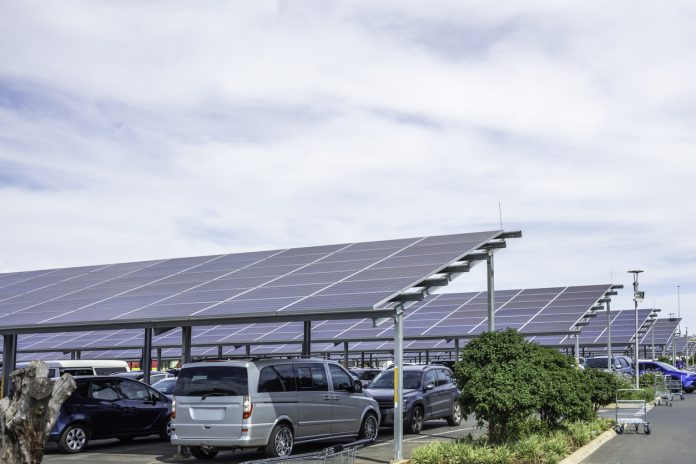Motorists and businesses across England, Wales, and Northern Ireland could soon see the benefits of solar-powered car parks under new government proposals to cut energy bills and improve access to electric vehicle charging
The change is part of the Plan for Change, which focuses on delivering cheaper, cleaner energy while improving energy security and supporting the UK’s transition to net zero.
Creating solar-panelled car parks
The Department for Energy Security and Net Zero has launched a call for evidence to explore how installing solar canopies in car parks, known as solar carports, can help reduce costs, support EV adoption, and better use underutilised urban space. These solar carports generate electricity and provide shaded parking for motorists, improving the customer experience during hot weather.
Initial estimates suggest that a car park with 80 spaces could save up to £28,000 per year on electricity bills if all the solar energy generated is used on-site.
These savings are based on forecasted commercial energy prices from 2025 to 2054, assuming a load factor of 11% and full self-consumption of the electricity produced.
Businesses could also earn additional income by selling excess power back to the grid or through long-term power purchase agreements.
More accessible charging points for EVs
For drivers, the rollout of solar carports means access to more EV charging points, cheaper charging costs, and cooler parking during heatwaves. This move complements the government’s £2.3 billion investment to support the switch to electric vehicles, which has helped increase the number of public EV chargers in the UK to over 76,500.
In addition to supporting electric vehicles, the government is introducing the Fuel Finder scheme to help petrol and diesel drivers save at the pump.
Under the scheme, all petrol stations must share price updates within 30 minutes of any change. This real-time price transparency is expected to drive competition and save motorists between 1 and 6p per litre on average.
Making solar panels mandatory in car parks is already implemented in some countries like France and Slovenia, and the UK government is now considering a similar approach. If widely implemented, solar carports could significantly contribute to the UK’s goal of reaching 45 to 47 gigawatts (GW) of solar capacity by 2030. Since July alone, nearly 3 GW of solar capacity has already been approved, enough to meet the annual electricity needs of one million homes.
The success of solar carport’s so far.
Several large-scale installations already show the potential of this approach. Bentley Motors in Cheshire has the UK’s largest solar carport, with 10,000 panels supporting its manufacturing operations. Eastbourne District General Hospital became the first in the country to run partially on power from a solar carport, cutting its emissions by 222 tonnes in one year.
At the Metrocentre in Gateshead, over 5,300 rooftop and carport solar panels now generate 40% of the centre’s electricity needs.
The solar sector already supports around 17,500 jobs across the UK, which could grow with further investment in solar infrastructure. By converting car parks into energy-generating assets, the government hopes to reduce electricity bills, create jobs, support the EV transition, and ensure the UK remains on track to becoming a clean energy superpower.











